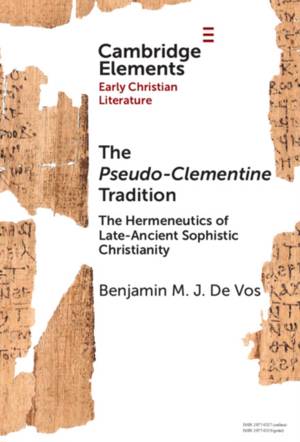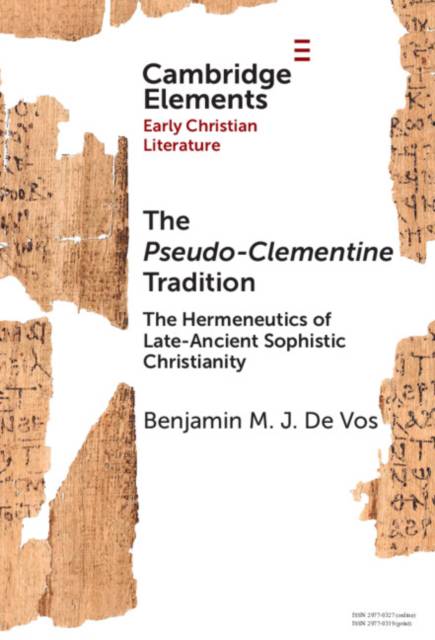
- Afhalen na 1 uur in een winkel met voorraad
- Gratis thuislevering in België vanaf € 30
- Ruim aanbod met 7 miljoen producten
- Afhalen na 1 uur in een winkel met voorraad
- Gratis thuislevering in België vanaf € 30
- Ruim aanbod met 7 miljoen producten
Zoeken
The Pseudo-Clementine Tradition
The Hermeneutics of Late-Ancient Sophistic Christianity
Benjamin M J De Vos
€ 112,95
+ 225 punten
Uitvoering
Omschrijving
This Element, through detailed example, scrutinizes the exact nature of Christian storytelling in the case of the Greek Pseudo-Clementines, or Klementia, and examines what exactly is involved in the correct interpretation of this Christian prose fiction as a redefined pepaideumenos. In the act of such reconsideration of paideia, Greek cultural capital, and the accompanying reflections on prose literature and fiction, it becomes clear that the Klementinist exploits certain cases of intertextual and meta-literary reflections on the Greek novelistic fiction, such as Chariton's Chaereas and Callirhoe and Achilles Tatius' Leucippe and Cleitophon, in order to evoke these reconsiderations of storytelling, interpretive hermeneutics, and one's role as a culturally Greek reader pepaideumenos. This Element argues that the Klementia bears witness to a rich, dynamic, and Sophistic context in which reflections on paideia, dynamics regarding Greek identity, and literary production were neatly intertwined with reflections on reading and interpreting truth and fiction.
Specificaties
Betrokkenen
- Auteur(s):
- Uitgeverij:
Inhoud
- Aantal bladzijden:
- 102
- Taal:
- Engels
- Reeks:
Eigenschappen
- Productcode (EAN):
- 9781009506700
- Verschijningsdatum:
- 16/10/2025
- Uitvoering:
- Hardcover
- Formaat:
- Genaaid
- Afmetingen:
- 152 mm x 229 mm
- Gewicht:
- 308 g

Alleen bij Standaard Boekhandel
+ 225 punten op je klantenkaart van Standaard Boekhandel
Beoordelingen
We publiceren alleen reviews die voldoen aan de voorwaarden voor reviews. Bekijk onze voorwaarden voor reviews.








